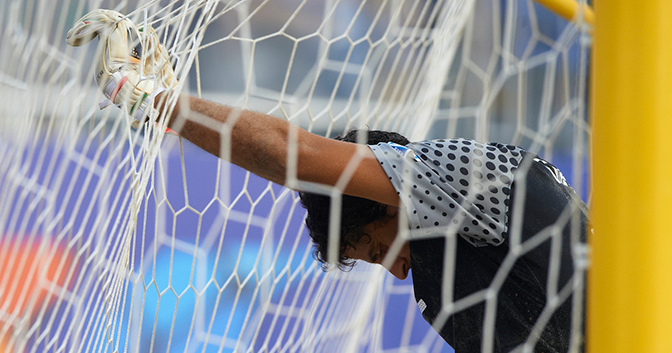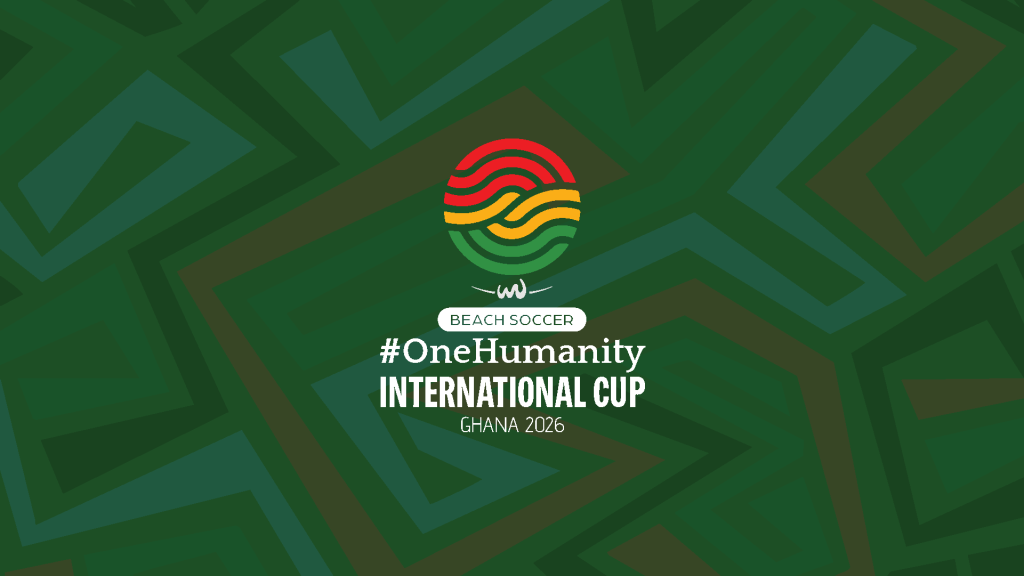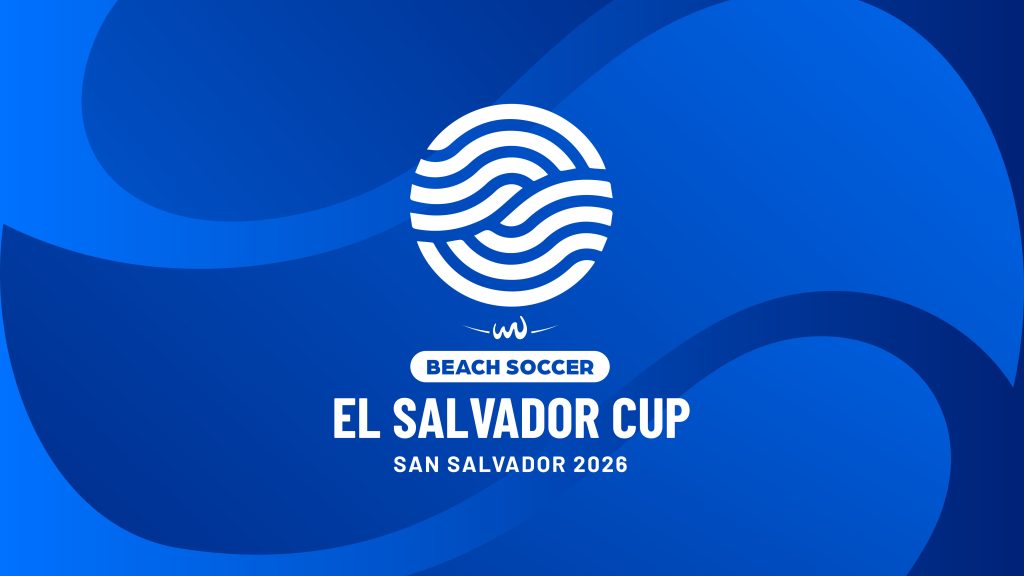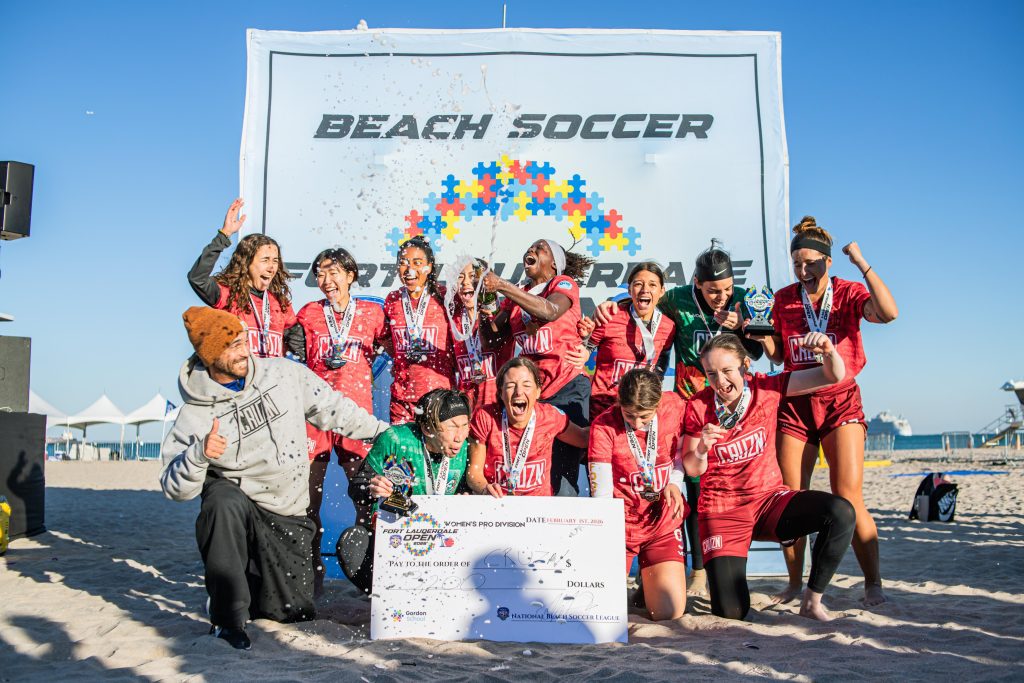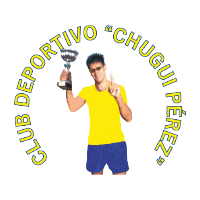“Beach soccer and football goalkeeping have nothing to do”
Formed on the grass of Sporting Portugal’s Alvalade, fate would have it that Paulo Graca became an icon of the Portuguese National Beach Soccer Selection, finishing with 147 caps. Though retired since 2013 he has had the opportunity to wear the gloves for over 20 years and now he has embarked on the mission of training others, successfully too. He is one of the most authorized voices in terms of goalkeeping, and getting to know how he sees and explains such a unique position is way worth a read… Below is the exclusive interview the keeper held by Mundo dos Guardaredes.
At only 37 and with your skill set, you could still represent the National Selection, but an injury has derailed your International career?
Yes, I had the injury for some time and from 2008-2013, playing beach soccer was really difficult. There cam a time when my mind was ready to go but my body was not. At the time, it was my goal to quit after the FIFA Beach Soccer World Cup 2015 because I knew we would be World Champions and I would leave on top.
How do you view this new challenge of training the next generation of goalies, both on the grass and on the sand?
Like everyone else who enters into a project, either training goalkeepers or teams, I think it is for us to feel useful, as well as to teach what you have been taught. This is what you want to be recognized for. I think that’s what everybody wants, and then, eventually, growing and acquiring more experience, solve bigger problems… Now, though, I do this because it is what I want to do, without thinking how far I want to get. Of course, if in the end we manage to get far, it is because our job is appreciated and recognized, which is also something very positive.
For those who do not know… Tell us again how did you land in beach soccer?
It was in 2007. Vitoria FC did not have a goalkeeper coming to a competition, and my friend Nuno Tavares thought about me. It was an event in Peniche, and I was just going to be the substitute goalkeeper. I was not supposed to play more than a few minutes but, when I did, I made myself seen and things went pretty well, as we ended winning the championship. I even scored a goal in the only two minutes I was on the pitch on my first game!
That year, the National Team had had a very disappointing perfromnace in the FIFA Beach Soccer World Cup held in Rio de Janeiro, and, as coach Ze Miguel began looking for a goalkeeper, the people in Vitoria FC talked him about me. I did not even fully know the beach soccer rules at that time! He phoned me, he asked me to join a training camp in Algarve some weeks later, and I did never leave the National Team again…
What aspects of eleven-a-side football you think helped you on the sand?
I had a good formation, at Sporting Clube de Portugal, where I shared the team with players who had successful international careers, such as Simão Sabrosa, Luis Boa Morte, Nuno Assis… I was a bit of a “different” goalkeeper back then… I was never under the crossbar, always trying to play out of the box, helping my defenders, and this has helped me a lot in beach soccer. Moreover, I was lucky enough to possess good shooting skills, and that was very useful on the sand.
What qualities do you need to possess in training as a goalkeeper in beach soccer?
The best goalies and the best training sessions for goalies in beach soccer are the one that focus on goalpost techniques, just like in football. But in beach soccer it is even worse, because you cannot rely on the rebound of the ball on the sand… You have to go for the ball all the time.
Besides that, positioning. In beach soccer, even more than in regular football, positioning is the key for goalkeepers. You have to look for the best position under the posts so that you do not need to dive for the ball at all times. Otherwise, you will not make it till the end of the game. You will just get exhausted before that, and your legs will not resist another game the day after.
Are the differences between football and beach soccer training even wider in real game?
During the game, a beach soccer goalkeeper needs to be more active and more attentive, than an eleven-a-side one. The ball can be shot on goal at any moment, from any position in the pitch, so the beach soccer goalkeeper needs to be ready. Football goalkeepers have time to read the game, to see what is going to happen, but beach soccer goalkeepers need to be ready to react. It is very different, very complex. A beach soccer goalkeeper and a football goalkeeper have nothing to do.
What attributes do you think a beach soccer goalie must have?
I am convinced, and work with my goalkeepers with this objective, that a goalkeeper need to be good in positioning. They need to be physically fit and coordinated in relation to their position, as well as trying to be as good technically as they can. That is what we work hard on.
Do you notice any differences or any evolution in the beach soccer goalkeeper from the beginning until now?
What I can say is that from 2009 to early 2010 we, the Portuguese squad, were one of the first to use the 5 vs 4 tactics, meaning the goalkeeper, me, played some meters out of the box, helping the attacking move of the team. Since then, things changed a lot, and feet technique training is also key for beach soccer goalkeepers. Although I was never very good with distributing the ball in the air, unlike current goalie, Eliton Andrade, I just did what it took when I was under pressure: chip and pass. From that moment on, the National Team began playing 5 vs 4. Today, almost everybody uses that tactic, but in 2010, Portugal were one of the pioneers…
So who is the keeper of your liking today?
One of the goalkeepers I liked the most in the last World Cup was Tahiti Jo Torohia, and Dona, from Spain, is one of the best right now, too. He has always been a great example of goalkeeping.









